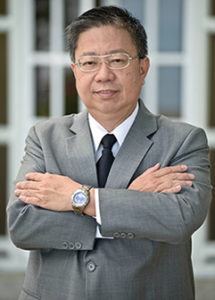Kuala Lumpur-based Michael Geh, a senior partner of Raine & Horne International Zaki + Partners Sdn Bhd, says three major South-east Asian countries namely Malaysia, the Philippines and Indonesia would likely be experiencing increased demand for housing in the coming months.
“About 47 percent of the population of Malaysia, or 14.3 million people, are aged between 20 and 49, and these people are seeking to buy their first homes.
“Therefore, the demand for starter homes will be high in 2017, yet Bank Negara Malaysia is expected to maintain its strict credit rulings because of Malaysia’s high household debts.
“The government’s Perumahan Rakyat 1Malaysia (PR1MA) units and affordable housing built by private developers have only seen a 50 percent take-up, because many potential homebuyers were unable to obtain housing loans.
“We expect to see international developers coming into the Malaysian market to take advantage of PR1MA, and we will see mergers and acquisitions among local developers,” Geh said.
However, sentiments were slightly different in the Philippines as the families of 2.4 million Filipinos overseas workers were expected to drive demand for real estate in the Philippines, Geh said.

“These overseas workers earn monthly salaries of US$1,800 to US$3,000. Each month, they send money back to their families, who then invest it in property.”
While in Indonesia it was a different matter altogether as the government of the day has decided to ramp up efforts to get rid of the rampant corruption which is having a major impact on the nation’s real estate markets.
“In the past 10 years, Indonesia’s Corruption Eradication Commission has created more transparency at the federal and provincial government levels,” Geh said.
In addition, a broad tax amnesty has seen huge amounts of cash being pumped back into Indonesia from the Singapore banking system and other offshore tax havens.
“This cash is being converted into property assets by investors searching for yields and returns. Thus, 2017 will be a boom year for the property industry in Indonesia.
“New laws are expected to be introduced this year allowing foreigners to take up ‘30 years plus 30 years’ of leasehold stratified properties such as condos and apartments in certain locations.
“The government has also launched a campaign to invite international investors to Indonesia. It wants investors to live, work and set up businesses there.
He also said many entrepreneurs and industrialists were slowly making their way to Indonesia because of its large population of 257 million people which meant it was a haven for various business opportunities.
“Over the last decade, many Singapore government-linked companies such as Keppel Land Ltd and CapitaLand Ltd have purchased prime buildings in Jakarta.
“They have also entered into joint ventures with local landowners and property developers to build over 20 large developments all over Indonesia,” he added.
